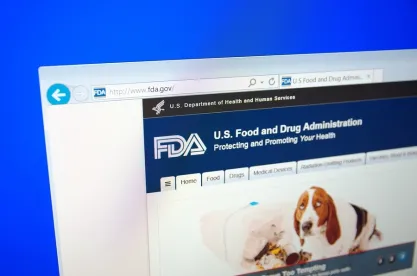On August 23, 2021, the U.S. Food and Drug Administration (FDA) granted full approval to Pfizer’s COVID-19 vaccine. Moderna’s expedited application for full approval is still pending, and Johnson & Johnson plans to submit its application for full approval sometime later this year.
Legality of Mandatory Vaccine Policies
This full approval, which we anticipated in a recent article regarding vaccination policies, does not change the legality of mandatory vaccination policies for most employers because, according to the U.S. Equal Employment Opportunity Commission and the U.S. Department of Justice, the FDA’s emergency use authorization (EUA) of the vaccines did not prevent vaccine mandates in the workplace. While it does not affect legality, the full FDA approval provides many employers with the green light they have been waiting for before implementing mandatory vaccination policies.
State Laws
In addition to the default legality of vaccination policies from a federal law perspective, the full approval raises questions regarding some of the state laws that premise restrictions on vaccine passports and mandates on the vaccines’ EUA status. And, this development will undoubtedly invigorate state legislative action to either ban or require vaccine passports (or even take a 180-degree turn with regard to each legislature’s political stance).
Montana
For example, Montana’s law—House Bill 702—that essentially classifies vaccination status as a “protected characteristic” and expressly prohibits discrimination based on an employee’s vaccination status, also states that “[a]n individual may not be required to receive any vaccine whose use is allowed under an emergency use authorization or any vaccine undergoing safety trials.” Now that the Pfizer vaccine has full approval, it is unclear what impact, if any, such full approval has on enforcement of that statute. Arguably, the Montana law’s general nondiscrimination provision pertaining to “vaccination status” is broad and may continue to be effective without regard to full FDA approval. In particular, the Montana law defines “[v]accination status” as “an indication of whether a person has received one or more doses of a vaccine,” without mentioning EUA status. On the other hand, the Montana law’s specific prohibition against vaccination mandates involving vaccines with EUA status may leave the door open for employers to mandate vaccination with a fully-approved vaccine. The fact that one of the vaccines is now fully approved and two vaccines remain in EUA status could also cause confusion regarding what an employer can ask and do with regard to employees who previously received the Pfizer vaccine while it was only in EUA status.
North Dakota
Similarly, North Dakota’s vaccine passport ban—House Bill No. 1465—is expressly “limited in application to a vaccination authorized by the federal food and drug administration pursuant to an emergency use authorization.” Whether North Dakota will carve out an exception to its statute or amend the statute based on the FDA approval of the Pfizer vaccine remains to be seen.
Florida and Texas
Conversely, although they do not prohibit private employers from mandating vaccination, the Florida and Texas laws banning vaccine passports do not make a distinction based on the EUA versus full approval status of any of the vaccines.
Secondary Effects of Full FDA Approval
While the FDA’s action does not change the legal foundation for allowing (or prohibiting) mandatory vaccination policies, the full approval may change many employers’ and employees’ minds regarding whether a mandate is appropriate for a certain organization. Many employers have been ready to immediately launch vaccination policies once the FDA gave full approval. Those employers are likely to implement their policies in short order. And, a large number of employees have used the EUA status to object to receiving one of the vaccines based on disabilities or religious beliefs. At least for the Pfizer vaccine, that objection has been taken away.
At the end of the day, an employer’s decision whether to mandate vaccination for some or all of its employees is a difficult and complex decision. But now, it may be slightly less contentious or controversial since at least one of the currently authorized vaccines has the full approval of the FDA.





 />i
/>i

